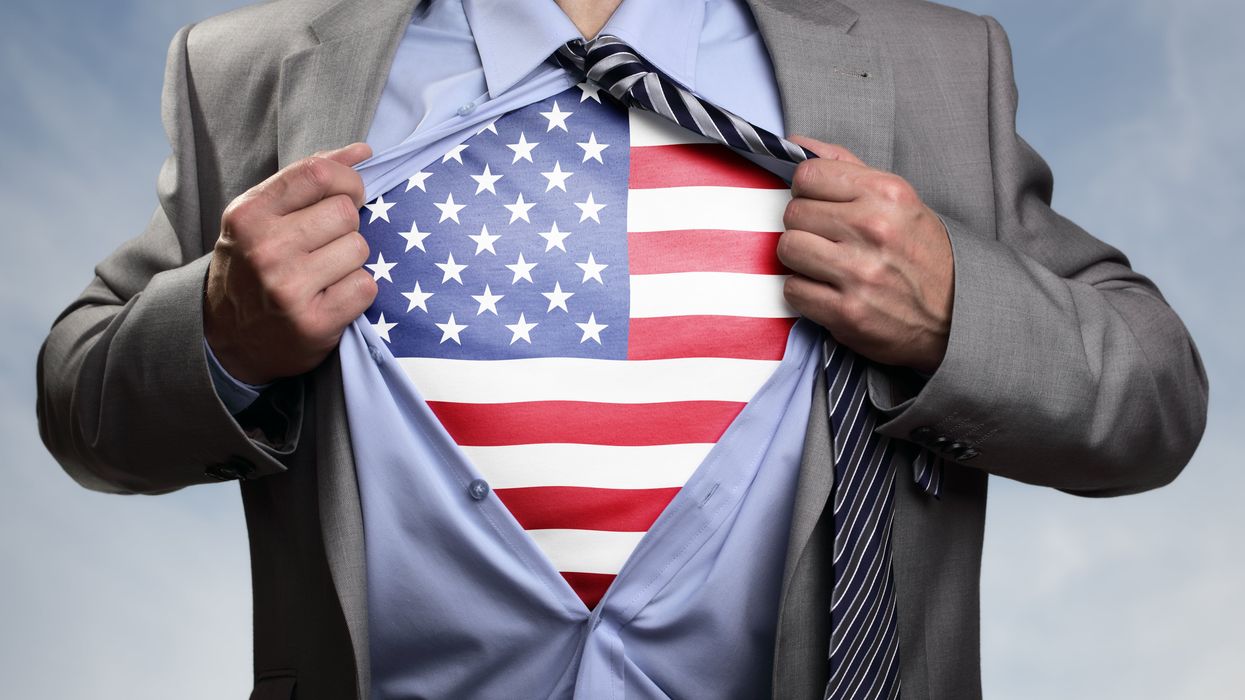Fordham is a PhD student in political science at the University of Washington. B rumbach is an associate professor of public policy at the University of California, Berkeley.
“[A]s a company, we have a responsibility to engage. For this reason, we are working together with other businesses through groups like the Business Roundtable to support efforts to enhance every person’s ability to vote.”
These were the words of AT&T CEO John Stankey, responding to a Georgia law that limited absentee voting. A similar bill proposed in Texas prompted Dell CEO Michael Dell to issue the following statement: “Free, fair, equitable access to voting is the foundation of American democracy. Those rights — especially for women, communities of color — have been hard-earned. Governments should ensure citizens have their voices heard. HB6 does the opposite, and we are opposed to it.”
The pattern is clear: U.S. business leaders are increasingly vocal in support of democratic institutions.
The reasons that business leaders would support democracy are not unclear. Compared to authoritarian regimes, democracies produce greater economic growth, invest more in human capital, and create more stable societies through the rule of law. Consumers are also quick to punish firms that support politicians with extreme or undemocratic views. At the same time, however, democracy means that all segments of society, including business, must engage in compromise and power sharing with those that might have very different interests over taxation, regulation, immigration, and social issues.
But are major U.S. firms living up to their stated commitments to democracy? This question is at the heart of this report from the Center for Political Accountability. While public statements in support of democracy and the rule of law are laudable, such talk means little if firms’ political spending is at odds with these commitments.
This question has taken on new importance as American democracy has come under strain over the past decade and a half. As the report highlights, large amounts of spending from corporate sources have supported gerrymandering efforts and restrictions on voting rights that have enabled state legislatures to enact unpopular policies across many policy realms, including abortion, LGBT rights, health care, and gun control. More recently, legislatures have even threatened to subvert presidential elections — which, if acted upon, would profoundly destabilize the rule of law in America.
There are two reasons why this report makes an important contribution. The first is that understanding political spending is no easy task. U.S. campaign finance law makes it easy to obscure the flow of money to candidates, parties, and especially to political organizations. So-called 527 organizations like the Republican State Leadership Committee, which this report focuses on, pool together unlimited contributions from many sources, making it difficult to hold specific donors accountable for how the money is spent.
The second reason is that political spending can have complex and unintended consequences for democratic institutions. Uniquely among wealthy countries, the United States puts most of its authority over democratic institutions like elections and legislative districting at the state level, where many big-spending political groups like the RSLC focus their efforts, often with little transparency. The decline of local newspapers and the dominance of national culture wars in media have made it much more difficult to track threats to democracy that arise from the state level — and whose political spending is financing them.
Political spending has long been a challenge for American democracy. But this challenge has become more urgent in recent years as society polarized and political spending grew larger and less transparent. In this light, the Center for Political Accountability’s efforts to shed light on political shareholders’ spending — giving employees, consumers, and citizens the tools to make informed economic and political decisions — have taken on new significance.
The link for those who want to read the Full Report:



















Trump & Hegseth gave Mark Kelly a huge 2028 gift